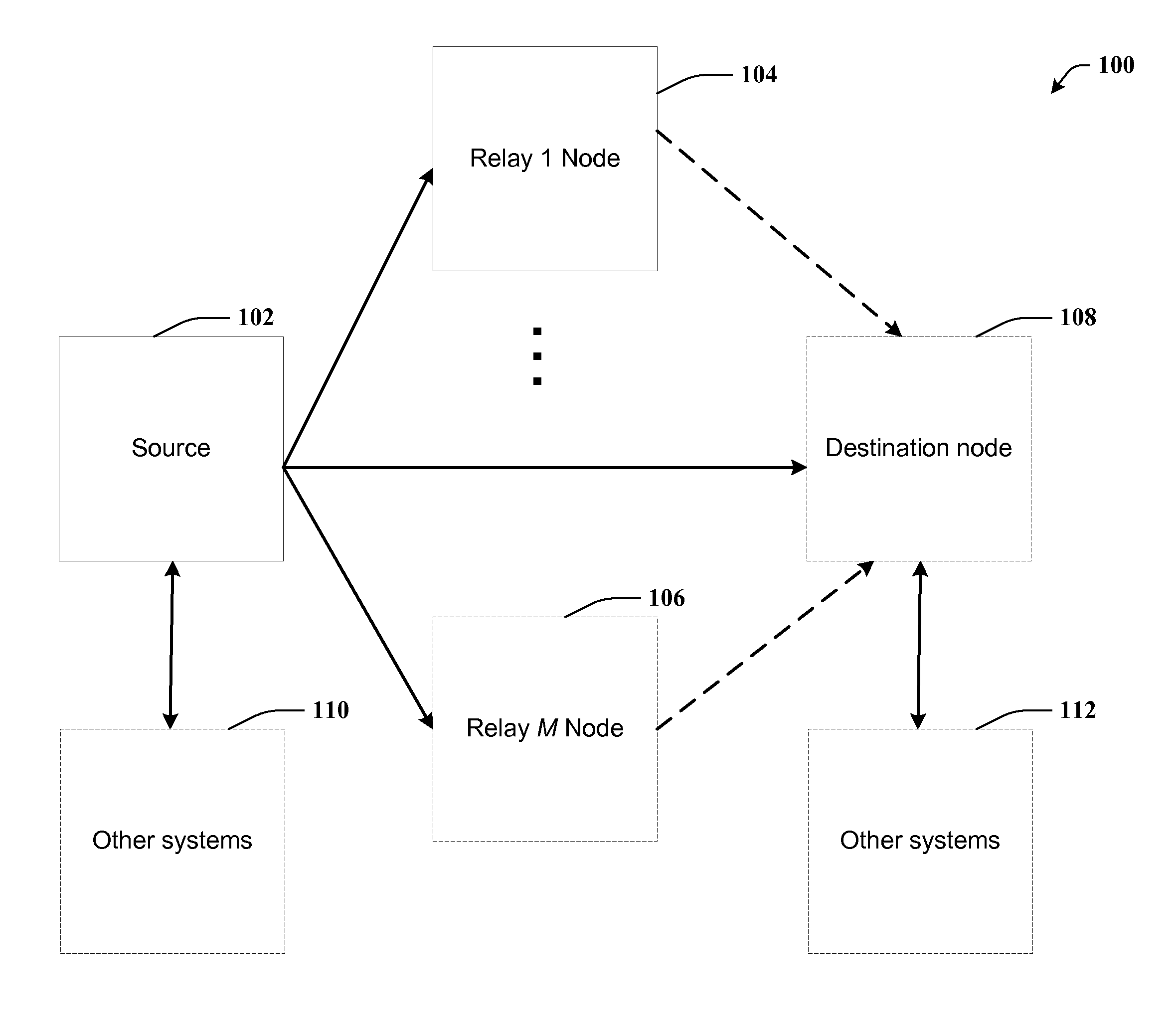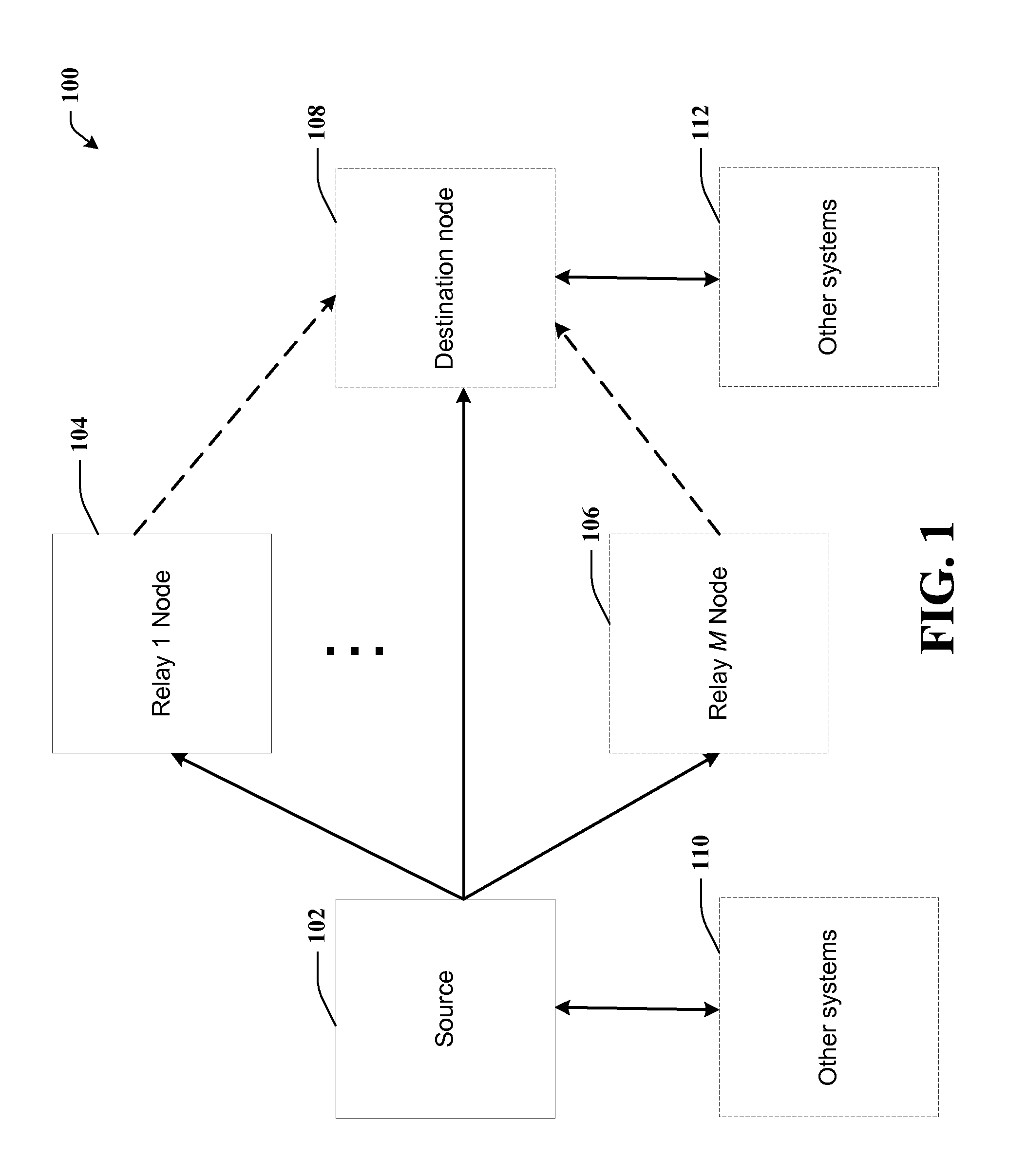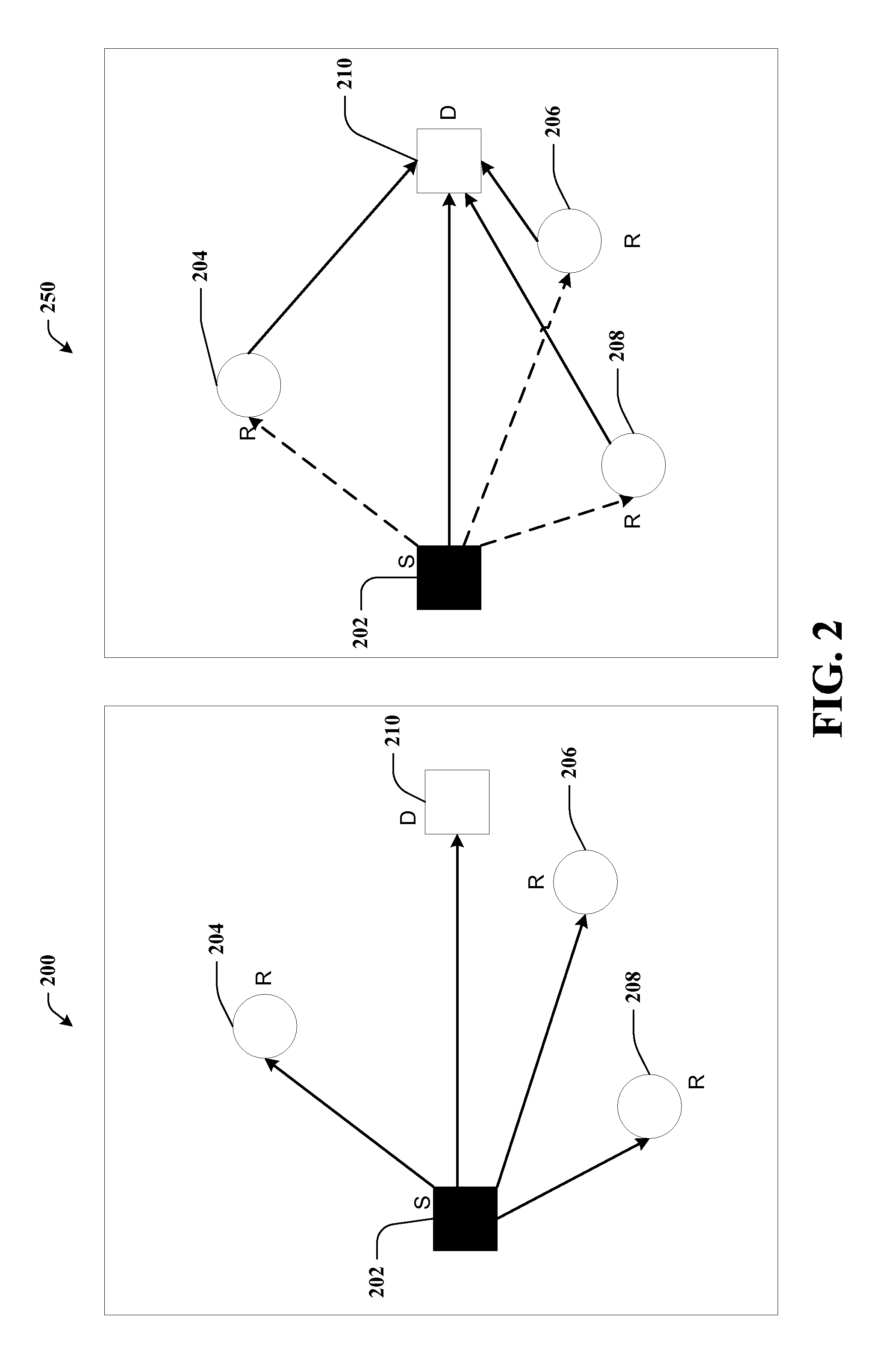Full-rate distributed space-time codes for cooperative communications
a space-time code and cooperative technology, applied in the field of wireless communication systems, can solve the problems of further apparent problems with the state of the art, reduce the symbol rate that can be transmitted, etc., and achieve the effect of maximizing coding gain and simplifying cooperative transmission
- Summary
- Abstract
- Description
- Claims
- Application Information
AI Technical Summary
Benefits of technology
Problems solved by technology
Method used
Image
Examples
Embodiment Construction
[0021]The present invention is now described with reference to the drawings, wherein like reference numerals are used to refer to like elements throughout. In the following description, for purposes of explanation, numerous specific details are set forth in order to provide a thorough understanding of the present invention. It may be evident, however, that the present invention may be practiced without these specific details. In other instances, well-known structures and devices are shown in block diagram form in order to facilitate describing the present invention.
[0022]Referring to FIG. 1, an exemplary cooperative network environment suitable for implementing aspects described herein is shown. One will appreciate that the block diagram is not to scale and that the various nodes can be arranged in space so that they are communicatively coupled together.
[0023]The network comprises a source node 102, one or more relay nodes (104 and 106) and a destination node 108. For the sake of cl...
PUM
 Login to View More
Login to View More Abstract
Description
Claims
Application Information
 Login to View More
Login to View More - R&D
- Intellectual Property
- Life Sciences
- Materials
- Tech Scout
- Unparalleled Data Quality
- Higher Quality Content
- 60% Fewer Hallucinations
Browse by: Latest US Patents, China's latest patents, Technical Efficacy Thesaurus, Application Domain, Technology Topic, Popular Technical Reports.
© 2025 PatSnap. All rights reserved.Legal|Privacy policy|Modern Slavery Act Transparency Statement|Sitemap|About US| Contact US: help@patsnap.com



